|
8:00-4:00 |
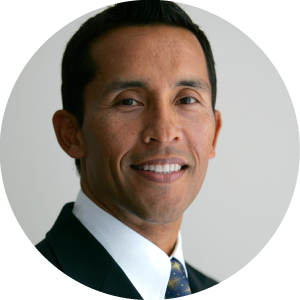
Michael Segovia, M.A.
Learn all about individuality within four-letter type at the Pre-conference MBTI® Step II™ Workshop. Take your leadership, coaching, and team development initiatives to a whole new level with a deeper understanding of personality type. The MBTI Step II (Form Q) tool offers a more detailed view of the 16 four-letter types by presenting 20 facets of the four MBTI preference pairs, making it possible to explore personal variation within each type. Learn more about the pre-conference MBTI® Step II™ workshop |
8:00–12:00 |
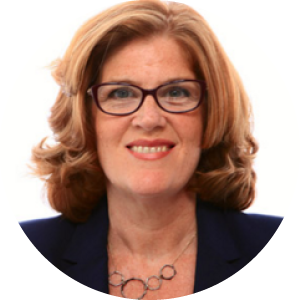
Cecilia Lynch
Calling all independent practitioners—this workshop was designed with your unique goals in mind!
|
1:00–5:00 |
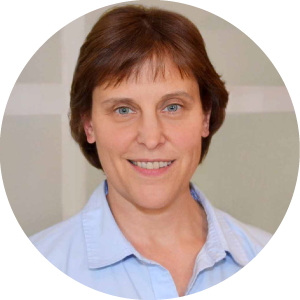
Marta Koonz
Relationship is at the heart of culture, and type can provide numerous ways to develop and support these vital connections. Advanced type knowledge can impact how we deal with stress, manage change, respond to conflict, and communicate with others – all critical pieces of a productive culture. In this workshop we go beyond the basics to explore nuances of personality type, exploring together interactive strategies for engaging your learners, strategies that will provide them with an understanding of type that goes beyond the training room to shape the very culture of their organizations. Learn more about the pre-conference Cultivating Connections: Interactive Strategies for MBTI® Type Application workshop. |
6:00–9:00 |
Welcome Reception |
|
7:30-8:20 |
Breakfast |
8:30-10:00 |
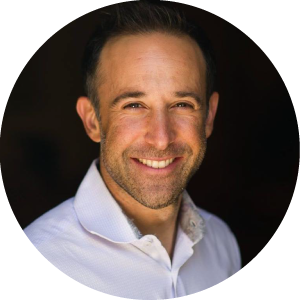
Robert Richman
Would you like to be a hacker?
|
10:10-11:00 |
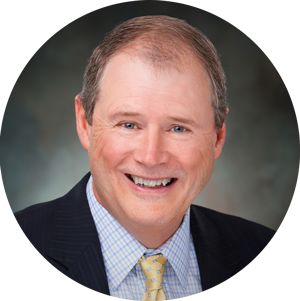
Dr. Pete Hammett
Today’s headlines point to a disturbing trend: Our nation and our world are becoming more and more polarized. Fueled by suspicion, fear, and ignorance, our conscience is troubled when we hear calls to isolate ourselves from those who look, think, and believe differently than the majority. Such isolationist thinking instills a justifiable concern for the world our children will inherit. The question is clear: How can we create communities in which the uniqueness of each individual is recognized and valued?

Martin Boult
The topic of well-being has garnered much attention in recent years as researchers have discovered that our well-being contributes to numerous positive outcomes in relationships, marriage, health, finances, work performance, academic achievement, creativity, job satisfaction, collaboration, and organizational commitment. The business case for promoting employee well-being is strong as there are clear advantages for individuals, teams, and organizations. 
Margaret Bailey
Margaret Bailey has witnessed firsthand how individuals, teams, and organizations benefit from the wide array of applications offered by the MBTI® framework. At Southland Industries, she observed a real living and breathing MBTI culture. Her experience at Southland informed her implementation of MBTI initiatives dedicated to individual development and team performance at Zappos, which resulted in a meaningful working environment. In both companies, interpersonal communications were eased by creating a shared MBTI type language, and creativity was fostered through deeper knowledge and acceptance of all 16 MBTI types. Comparing and contrasting these two programs, Bailey will share ways you can use the MBTI framework to creatively and innovatively shape and cultivate culture and support how an organization operates. In this interactive session you will:
|
11:00-11:20 |
Refreshments Break |
11:20-12:10 |

Bonnie Hagemann
Generation Y (also known as the millennial generation) is taking over the workforce and life in the world of work is becoming interesting. More than one in three workers in the U.S. today are millennials (adults aged 18 to 34 in 2015), surpassing Generation Xers to represent the largest share of the U.S. workforce, according to new Pew Research Center analysis of U.S. Census Bureau data. As Baby Boomers and Gen Xers react to and try to understand this swift change in the workplace—and hence in organizational culture—a lot of emotions are being stirred up, including excitement, confusion, and more than a little fear. The older generations are trying to adjust, showing some signs of optimism tempered by mild distaste as they hear Gen Y’s employment demands. On the surface, it seems that Gen Yers don’t want to work hard, yet they require a lot of vacation time, big jobs (no grunt work, please), and high salaries. But when we dig a little deeper, we find something else. We find a new generation of idealists who want to change the world and are willing to do the work required to change it. Both the work and the work environment are going to start evolving rapidly, and the changes and the change makers are working from the bottom up instead of from the top down. This generation is not going to fit into the historic corporate America mold. Gen Y’s impact is going to be so substantial that everyone and everything is going to have to make considerable adaptations in response to their move from the minority to the majority of the workforce. In this session, Bonnie Hagemann will:
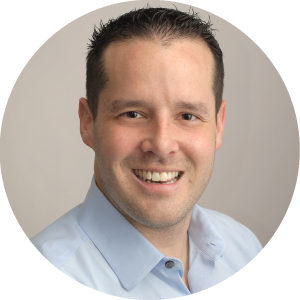
Daniel Grachanin
In this session, Daniel Grachanin will focus on how to identify different MBTI® type preferences easily and accurately by “reading” a person’s body language, conversation, and communication via electronics (text message, email, forums, etc) and then use that information to improve interpersonal understanding. Citing both anecdotal examples and hard data, he will show how executives and other leaders at Google are trained in this skill and use it to better interact with their employees. The session will outline exercises used in this training to help the Google leaders understand employees and learn to flex to different personality preferences in order to ensure a workplace of psychological safety. 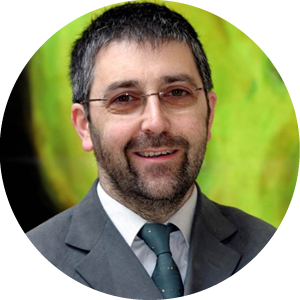
Damian Killen
Effective leadership today relies more than ever on influencing others—impacting their ideas, opinions, and actions. While influencing has always been a valuable managerial skill, today’s highly collaborative organizations make it essential across many functions and levels. Research shows that there are many factors that contribute to each of us being effective in influencing others and in being influenced. Most are unique and reflect different styles, preferences, values, needs, and experiences.
|
12:10-1:10 |
Lunch & Networking |
1:10-2:00 |

Patrick Kerwin
When presented with the topic of MBTI® type, our clients and participants do what many of us do when we’re curious about something: they jump online! And after they do, our clearest intentions for using the MBTI assessment can seem to become muddied. We may hear:
At first, comments such as these can be rather unsettling. But upon further investigation, the sources of such statements and questions often reveal significant misunderstandings and misinformation about the MBTI assessment and psychological type. In this session, Patrick Kerwin will examine the sources of some common questions and concerns about the MBTI assessment, identify the origins of the misunderstandings and misinformation, and offer accurate and simple responses you can use in providing clarity about the MBTI assessment and in creating a culture of clarity about its use in your organization. |
2:10-3:00 |

Pam Fox Rollin
You’re psyched to engage your employees at all levels in building your organization’s culture. Whether your company is ready to assess the culture, change it, or live it more deeply, you know that involving the whole team—your cynics as well as the “usual suspect” volunteers—will be critical to making the culture real for everyone.
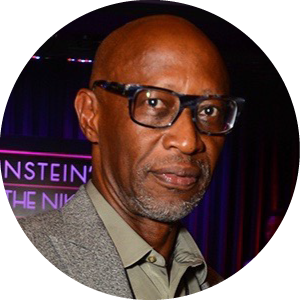
Rick Gayle
Workplace culture, when aligned with the business strategies of an organization, will foster an understanding at all levels of how work gets
done. Furthering this understanding, diversity and inclusion are the cornerstones of an organizational culture that embraces the notion that improved
decision-making behaviors will lead to improved bottom-line results.

Catherine Rains, M.S.
Helping individuals choose the right career path is only one part of the career development journey. Once the ideal path is identified, the process moves to more challenging tasks, such as searching for potential employers, interviewing successfully, and ultimately securing the gig. But successfully navigating the job search process doesn’t necessarily guarantee job success. While the career—and even the specific role—might be a perfect match, the organizational culture might prove to be a major “miss” that is costly to employees and employers alike. According to the Society for Human Resource Management (SHRM), the result of poor culture fit due to turnover can cost an organization 50–60% of the person’s annual salary. In this session, you will explore how to use the Strong and MBTI® assessments together to help create more “matches” from potential “misses” by helping individuals identify what types of organizational cultures will be most satisfying for them. Then you’ll go a step further and explore how to help individuals thrive during economic downturns or organizational shifts that force them to adapt to organizations that offer a less than ideal match. During this interactive session, Catherine Rains will discuss the value that each assessment brings and will show you how to conduct activities that will help your students and clients describe their ideal organizational culture as well as identify strategies for thriving in organizations that fall short of their expectations. |
3:00-3:20 |
Refreshments Break |
3:20-4:10 |
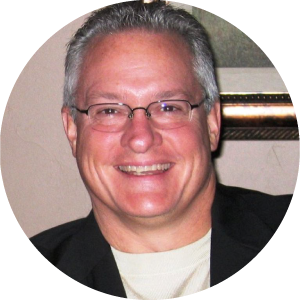
Chris Robbins
Southwest Airlines has grown from a small regional airline into the most admired, most profitable, and largest domestic carrier in the country. Customers are raving fans, and fanatical employees are fully engaged in providing world-class hospitality, on-time reliability, and low-cost leadership. And Southwest Airlines has been using the Myers-Briggs Type Indicator® assessment for over 20 years to improve communication and teamwork.

Sherrie Haynie, M.ED.
“Virtual” teams—ones made up of people in different physical locations—are on the rise. The appeal of forming virtual teams is clear: employees can manage their work and personal lives more flexibly, as well as gain the opportunity to interact with colleagues around the world; and companies can use the best and lowest-cost global talent and significantly reduce their overhead costs. Though it may be difficult to get the most out of virtual teams, when done right the payoff can be substantial. An Aon Consulting report noted that using virtual teams can improve employee productivity; some organizations have seen gains of up to 43%. In this session, Sherrie Haynie and Rich Thompson will explore current trends in virtual teaming and will cover the implications to successful MBTI training. You’ll learn how to adapt classroom exercises for virtual environments and you’ll discover best practices for keeping type in mind as you create MBTI development trainings for dispersed teams. 
J. Forrest
The word culture has been around for more than 500 years, but it’s currently experiencing a serious wave of momentum. In 2012, Fast Company published an article titled “Culture Eats Strategy for Lunch.” Two years later Webster’s dictionary made culture its word of the year. Now in 2016 at the MBTI® Users Conference we'll gather on the topic because it continues to matter. This session is intended to take that belief and give you specific tools and ideas that can be applied to your workplace. Through three case studies we will highlight how we have approached culture change, starting with the measurement phase, through to the solutions, and on to follow-up results. Specific attention will be given to the leadership team type table as well as unique ways we have used the MBTI® assessment to disarm conflict and increase engagement. Examples from healthcare, Major League Baseball, the world of craft beer, and an award-winning “Best Place to Work” will be threaded throughout this session. |
4:20-5:30 |

Michael Segovia, M.A.

Chris Robbins
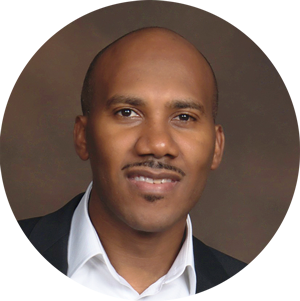
Ruberstein Jean-Louis

Pam Fox Rollin

Daniel Grachanin
According to Korn Ferry Institute, 72% of global executives agreed that culture is extremely important to organizational performance, yet only 32% said their culture aligned with their business strategy. The cost of this gap between awareness and action is steep. |
5:30-7:30 |
Customer Appreciation Happy Hour |
|
7:30-8:20 |
Breakfast |
8:30-9:20 |

Damian Killen
In many ways the personality of an organization is embodied in its culture. The MBTI assessment gives us a lens through which to focus not only on the people who shape the culture but also the organizational behaviors that sustain that culture. This session will look at how strategic intent is often guided by MBTI preferences and the impact they have on organizational alignment. |
9:30-10:20 |

Dr. Angela Farmer
In the children’s game of Follow the Leader, participants have to do what the leader says or does until such time as a new leader arises. Then the new leader takes the helm. Similar behaviors are witnessed in flocks of birds, schools of fish, troops of soldiers, and collegiate athletic teams. Once one understands a leader’s MBTI type, it becomes clear that the culture he establishes is distinctly related to his type preferences. In this session, Angela Farmer examines how the Myers-Briggs® type of the leader, in this case a collegiate coach, impacts the selection of staff, coaches, and players on the team in a Southeastern Conference university. 
Michael Segovia, M.A.
What we need, combined with what we fear can have a huge impact on our behavior. This can affect how we use and possibly over use our preferences during stress. This session will look at how our interpersonal needs are connected to our personality preferences as well as what happens when our needs are not met. An overview of Will Schutz’ FIRO theory as it relates to compatibility will be included. Finally, personality type examples of initial stress to extreme stress along with suggested “remedies” for each of the sixteen types will be shared. 
Jessie Lockhart
Does it seem impossible to implement a new development program in a Fortune 500 company? How would you go about introducing the MBTI assessment to a multi-thousand person company? In this session, Jessie Lockhart will explore the art of the grassroots approach based on what she calls the “if you build it, they will come” model. She will present:
|
10:20-10:40 |
Refreshments Break |
10:40-11:30 |
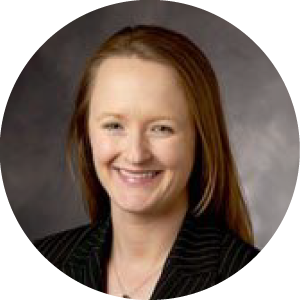
Stephanie K. Eberle, M.Ed
Do we create our culture or does our culture create us?

Andrew Bell
In this session, Andrew Bell will demonstrate how the MBTI and TKI assessments were integral to consulting assignments in which he helped senior leadership teams both leverage their strengths and address their dysfunctional characteristics. He will share thoughts on how to engage constructively with leaders in such assignments, where initial responses range from unrealistic optimism to destructive cynicism.

Ruberstein Jean-Louis
I’m sure at some point you’ve heard people saying things like, “the only constant we have is change,” “humans have been evolving for a long time,” “she’s a changed woman,” “companies are bound to struggle when they fail to change,” “the world is changing all around us”... And these days you can’t avoid hearing political candidates emphatically proclaim that they are the ones who will “bring about change.” With all this talk (and occasionally evidence!) regarding change, why are we still suspicious of it? Why is it managed so poorly? Why do we experience it with such trepidation? Please join me in “Stirring Up Change with the MBTI® Framework” at the 2016 MBTI® Users Conference. |
11:40-12:30 |

Sharlyn Lauby
The business world is changing. Employees at every level are being asked to manage their own career. This means more than just attending professional development workshops. Employees also must become sufficiently self-aware to understand how they like to learn, what they need to learn, and the best way to develop a career strategy.
|
8:00 AM–5:00 PM
Pre-conference Workshops
(Learn more)
1:30 PM–4:30 PM
Main Conference Check-in/Registration Desk on Mezzanine Level
6:00 PM–9:00 PM
Welcome Reception at the Starlight Room
7:30 AM–8:15 AM
Breakfast Served on Mezzanine Level
8:30 AM–5:15 PM
Keynote, Breakout Sessions & Networking on 2nd Floor
5:30 PM–7:30 PM
Customer Appreciation Happy Hour at Gaspar Brasserie
7:30 AM–8:15 AM
Breakfast Served on Mezzanine Level
8:30 AM–12:30 PM
Keynote, Breakout Sessions & Networking on 2nd Floor